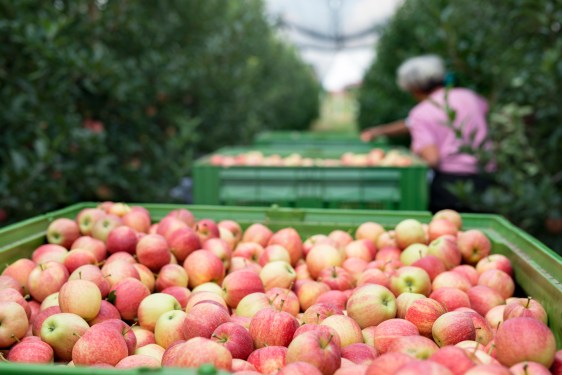Introduction
Food waste is an issue that affects us all. In the United States alone, roughly 30% to 40% of the food supply ends up in landfills each year. According to a United Nations report, around one-third of the world’s food is wasted annually, adding up to a staggering 1.3 billion tons – worth almost $1 trillion. Given the scale and societal implications of food waste, it’s no surprise that there are numerous startups attempting to tackle this challenge from various angles.
A Closer Look at Food Waste Startups
One such startup is Yume, which helps manufacturers turn potential food waste into cash. Divert aims to tackle grocery store waste algorithmically, while Idais applies AI to prevent surplus in supermarkets. Choco is another venture that’s fostering a more sustainable food system for restaurants and suppliers.
Another key player in the fight against food waste is Los Angeles-based ProducePay. Founded by Pat McCullough and Pablo Borquez Schwarzbeck in 2015, ProducePay’s mission is to provide fresh produce growers with a platform to sell their products directly to consumers. This approach helps reduce waste by ensuring that every product reaches its intended destination.
The Problem of Food Waste
Food waste has far-reaching consequences beyond just the environmental impact. According to the United Nations, if food waste were a country, it would be the third-largest emitter of greenhouse gases after China and the United States. Furthermore, the amount of water required to produce wasted food is substantial, exacerbating the global water crisis.
ProducePay’s Approach
ProducePay tackles the issue of food waste by providing growers with a platform to sell their products directly to consumers. This approach helps reduce waste by ensuring that every product reaches its intended destination. By cutting out intermediaries and allowing growers to connect directly with consumers, ProducePay reduces the likelihood of food spoilage.
Key Features of ProducePay
- Direct-to-consumer sales: ProducePay allows growers to sell their products directly to consumers, reducing the need for intermediaries.
- Reduced waste: By ensuring that every product reaches its intended destination, ProducePay helps reduce food waste.
- Increased revenue: Growers can earn higher prices for their products by selling them directly to consumers.
- Improved transparency: Consumers have access to detailed information about the products they purchase, including the grower’s name, location, and farming practices.
Growth and Funding
ProducePay has seen significant growth in recent years. The company raised $38 million in a Series D round led by Syngenta Group Ventures, with participation from Commonfund and Highgate Private Equity. This funding brings ProducePay’s total raised to $136 million, which will be used to support the company’s expansion into new markets.
The Future of Food Waste Reduction
ProducePay’s innovative approach has the potential to make a significant impact in reducing food waste globally. By providing growers with a platform to sell their products directly to consumers, ProducePay helps ensure that every product reaches its intended destination. As the world grapples with the challenges of climate change and sustainable food production, companies like ProducePay are essential in driving positive change.
Conclusion
Food waste is an issue that affects us all. By understanding the problem and exploring innovative solutions, we can work towards reducing food waste globally. ProducePay’s approach offers a promising solution to this complex challenge, and its growth and funding demonstrate the potential for impact.
Sources
- United Nations Food and Agriculture Organization (FAO)
- ProducePay
- Syngenta Group Ventures

